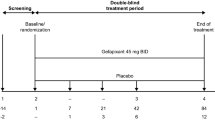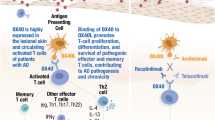Abstract
Dupilumab (Dupixent®) is a fully human IgG4 monoclonal antibody against the interleukin (IL)-4 receptor α (IL-4Rα) subunit, which is shared by the type I IL-4 and the type II IL-4/IL-13 receptor complexes. By binding to and blocking this subunit, dupilumab inhibits IL-4 and IL-13, which are the major drivers of human type 2 inflammatory disease [e.g. asthma, atopic dermatitis and chronic rhinosinusitis with nasal polyps (CRSwNP)]. Dupilumab, administered subcutaneously, is the first biological therapy to be approved for the treatment of adults with inadequately controlled CRSwNP in the EU and the USA. In two placebo-controlled, multinational, phase III studies of 24 and 52 weeks’ duration, the addition of dupilumab (300 mg every 2 weeks) to the intranasal corticosteroid treatment of adults with severe, inadequately controlled CRSwNP was generally well tolerated and improved nasal polyp size, sinus opacification and health-related quality of life (HR-QOL), relieved the major symptoms of CRSwNP (nasal congestion or obstruction, nasal discharge and loss of smell) and reduced the use of systemic corticosteroids and the need for nasal polyp surgery. Improvements in nasal polyp size, sinus opacification and nasal congestion or obstruction were achieved regardless of the presence of comorbid asthma or NSAID-exacerbated respiratory disease, or a history of previous nasal polyp surgery, with patients with comorbid asthma also demonstrating improvements in lung function and asthma control regardless of their baseline eosinophil count. Thus, add-on subcutaneous dupilumab is a valuable treatment option for adults with inadequately controlled CRSwNP.
Similar content being viewed by others
References
Stevens WW. A new treatment for chronic rhinosinusitis with nasal polyps. Lancet. 2019;394(10209):1595–7.
Ren L, Zhang N, Zhang L, et al. Biologics for the treatment of chronic rhinosinusitis with nasal polyps: state of the art. World Allergy Organ J. 2019;12(100050):1–6.
American Academy of Allergy Asthma and Immunology. Nasal polyps. 2019. https://www.aaaai.org/conditions-and-treatments/library/allergy-library/nasal-polyps. Accessed 13 Mar 2020.
Hopkins C. Chronic rhinosinusitis with nasal polyps. N Engl J Med. 2019;381(1):55–63.
Sanofi-aventis US LLC and Regeneron Pharmaceuticals Inc. Dupixent® (dupilumab) injection, for subcutaneous use: US prescribing information. 2019. http://www.fda.gov/. Accessed 13 Mar 2020.
Sanofi-aventis groupe. Dupixent (dupilumab) solution for injection: EU summary of product characteristics. 2020. http://www.ema.europa.eu/. Accessed 13 Mar 2020.
Deeks E. Dupilumab: a review in moderate to severe asthma. Drugs. 2019;79:1885–95.
Frampton JE, Blair HA. Dupilumab: a review in moderate-to-severe atopic dermatitis. Am J Clin Dermatol. 2018;19(4):617–24.
Bachert C, Mannent L, Naclerio RM, et al. Effect of subcutaneous dupilumab on nasal polyp burden in patients with chronic sinusitis and nasal polyposis: a randomized clinical trial. JAMA. 2016;315(5):469–79.
Bachert C, Han JK, Desrosiers M, et al. Efficacy and safety of dupilumab in patients with severe chronic rhinosinusitis with nasal polyps (LIBERTY NP SINUS-24 and LIBERTY NP SINUS-52): results from two multicentre, randomised, double-blind, placebo-controlled, parallel-group phase 3 trials. Lancet. 2019;394(10209):1638–50.
European Medicines Agency. Dupilumab: extension of indication variation assessment report. 2019. http://www.ema.europa.eu/. Accessed 13 Mar 2020.
Jonstam K, Swanson BN, Mannent LP, et al. Dupilumab reduces local type 2 pro-inflammatory biomarkers in chronic rhinosinusitis with nasal polyposis. Allergy. 2019;74(4):743–52.
Agarwal A, Spath D, Sherris DA, et al. Therapeutic antibodies for nasal polyposis treatment: where are we headed? Clin Rev Allergy Immunol. 2019. https://doi.org/10.1007/s12016-019-08734-z.
Fokkens WJ, Lund VJ, Mullol J, et al. EPOS 2012: European position paper on rhinosinusitis and nasal polyps 2012. A summary for otorhinolaryngologists. Rhinology. 2012;50(1):1–12.
Orlandi RR, Kingdom TT, Hwang PH. International consensus statement on allergy and rhinology: rhinosinusitis executive summary. Int Forum Allergy Rhinol. 2016;6(Suppl 1):S3–21.
Fokkens WJ, Lund V, Bachert C, et al. EUFOREA consensus on biologics for CRSwNP with or without asthma. Allergy. 2019;74(12):2312–9.
Agnihotri G, Shi K, Lio PA. A clinician’s guide to the recognition and management of dupilumab-associated conjunctivitis. Drugs R D. 2019;19(4):311–8.
Codispoti CD, Mahdavinia M. A call for cost-effectiveness analysis for biologic therapies in chronic rhinosinusitis with nasal polyps. Ann Allergy Asthma Immunol. 2019;123(3):232–9.
Acknowledgements
During the peer review process, the manufacturer of dupilumab was also offered an opportunity to review this article. Changes resulting from comments received were made on the basis of scientific and editorial merit.
Author information
Authors and Affiliations
Corresponding author
Ethics declarations
Funding
The preparation of this review was not supported by any external funding.
Conflict of interest
Sheridan Hoy is a salaried employee of Adis International Ltd/Springer Nature, is responsible for the article content and declares no relevant conflicts of interest.
Additional information
Additional information for this Adis Drug Evaluation can be found at https://doi.org/10.6084/m9.figshare.12032292.
The manuscript was reviewed by:K. F. Chung, National Heart and Lung Institute, Imperial College London & Royal Brompton Hospital, London, UK; M. Desrosiers, Division of Otolaryngology-Head & Neck Surgery Centre, University of Montreal Hospital (CHUM), Montreal, Quebec, Canada; D. B. Price, Observational and Pragmatic Research Institute, Singapore and University of Aberdeen, Aberdeen, Scotland; B. Senior, University of North Carolina at Chapel Hill, Chapel Hill, NC, USA.
Rights and permissions
About this article
Cite this article
Hoy, S.M. Dupilumab: A Review in Chronic Rhinosinusitis with Nasal Polyps. Drugs 80, 711–717 (2020). https://doi.org/10.1007/s40265-020-01298-9
Published:
Issue Date:
DOI: https://doi.org/10.1007/s40265-020-01298-9




